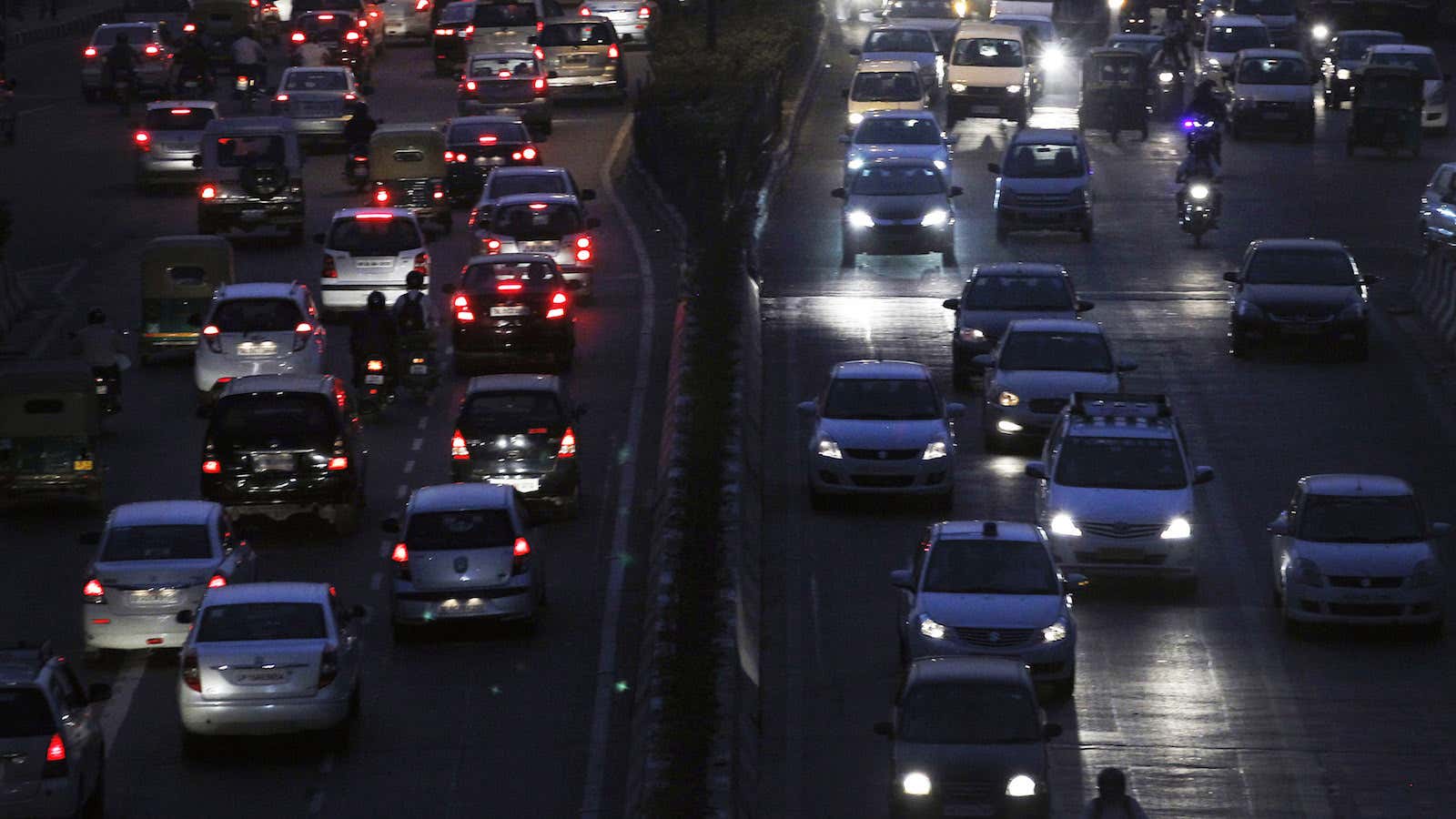One of France’s biggest startups and amongst the world’s largest carpool companies wants to revolutionise the way Indians travel. But BlaBlaCar, which launched in India on Jan.14, will have to deal with some significant local safety and regulatory concerns that could potentially turn its ride in India into a rather bumpy one.
The Paris-headquartered company launched its maiden service on the Delhi-Gurgaon route and aims to be a facilitator for inter-city travel by connecting commuters to vehicle owners, who are either travelling alone or looking to share their travel costs.
“We are targeting that segment of people who plan their travel in short period of seven days or less,” BlaBlaCar’s co-founder Nicolas Brusson told Quartz in a telephone interview. “They can check on BlaBlaCar for travellers on the same route and choose to travel with them. That would cut down the cost for everyone and make the travel easier.”
Brusson, along with Frédéric Mazzella and Francis Nappez, founded the company a decade ago, and in 2014, raised $100 million in venture capital funding led by Index Ventures.
In India, it wants to capitalise on the strong demand for inter-city travel, essentially competing with Indian railways, long-distance bus operators and taxi operators.
“We will bring about a change in the way Indians travel in the 40 kilometers-400 kilometers route,” said Raghav Gupta, BlaBlaCar’s country manager in India.
The BlaBlaCar model
The company follows a rather simple model. It act as a facilitator—or a marketplace—between two parties travelling on the same route.
The platform allows private vehicle owners to inform the others in the community about their travel plans, and those who want to join them can request for a ride and pay a fare at the end of the trip. BlaBlaCar fixes a ceiling on the cost of travel depending on the route. Customers will have to pay their drivers in cash at the end of the journey, and BlaBlaCar plans to bring in an online payment system once its Indian business is better established.
The model has been a success in Europe, where carpooling is common, and BlaBlaCar currently operates in 13 countries.
For the Indian market, the company says it is within the due legal boundaries—and has even decided to make the first year of operations free for commuters.
“Unlike taxi services, whose operations are questioned, we connect private vehicle owners to travellers and we have done our due diligence already on the matter,” Brusson said. “Customers can choose who they want to travel with.”
“The Indian government has been encouraging carpooling to bring down traffic and we are only doing that,” he added.
Indeed, the Delhi government has been seeking a mega carpool scheme (pdf) in the national capital region to cut down on the number of vehicles plying the roads.
However, there are no laws in the country regulating carpooling.
Unlike Uber and Ola that typically ply within a particular city and therefore are governed by the regulations of that state, BlaBlaCar will often operate across state boundaries using privately-owned vehicles. The company argues that since these are private drivers who are essentially sharing the cost of a trip—instead of seeking to profit from taking more passengers on board—these vehicles don’t qualify as taxis.
Safety concerns
The share economy—particularly, transportation facilitators—has been under close scrutiny after a woman alleged last December that she had been raped by her Uber driver.
The Indian government reacted by banning Uber.
BlaBlaCar says that it has built-in measures to ensure the safety of commuters. “We check the Facebook account, emails, verify the telephone numbers and, in the future, we plan to link the driver’s bank accounts also for enhanced security,” Brusson said. The company has also set up a 24-hour team to assist commuters.
But given the availability of forged documents—and the ease with which fake Facebook and email accounts can be created—BlaBlaCar’s verification process may not be robust enough for India.
The company also relies heavily on a rating system, where both drivers and passengers are rated, and an individual’s reviews is available to everyone on the entire community. “Only if you trust the driver, you take the trip,” Brusson said.
The onus, clearly, is on the customers.
